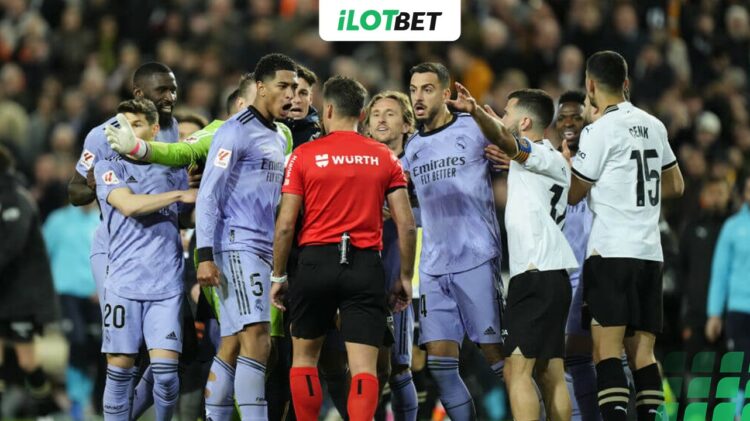It’s a thankless job, isn’t it? You run up and down a football pitch for 90 minutes, blowing your whistle, flailing your arms, and trying not to get trampled by angry players, harassed by furious fans, or torn apart by pundits on live TV. In today’s game, refereeing isn’t just about enforcing the rules anymore, it’s a full-blown high-wire act, performed in front of millions.
Let’s face it, the modern-day referee is under more pressure than ever before, and the reasons are everywhere you look. One of the biggest culprits? Technology. When VAR (Video Assistant Referee) was introduced, it was sold to us as a helpful sidekick for referees. A second pair of eyes. A way to reduce controversy. What it has become, however, is a microscope—an unforgiving, slow-motion, multi-angle, zoom-enhanced microscope that broadcasts every decision to the world for judgment.
Referees used to be trusted to make calls in real time, and that was that. Now, one wrong step and the footage is all over social media before the final whistle even blows. Remember when Michael Oliver gave that late penalty to Real Madrid against Juventus in the Champions League? The backlash was brutal—so brutal, in fact, that he and his wife received threats. The poor guy needed police protection, just for doing his job.
And it’s not just the technology piling on the heat. Fans have become their own media outlets. A bad decision used to spark arguments in pubs; now, it trends worldwide in seconds. A questionable offside call can lead to tens of thousands of angry tweets, memes, and video breakdowns. Referees today aren’t just judged—they’re put on trial by millions, in real time.
Then come the players. Oh, the players. With acting skills worthy of an Oscar, they dive, roll, and scream with such passion you’d think they were auditioning for a Nollywood drama. Take Neymar in the 2018 World Cup, for instance—his rolling antics caused more global debate than the actual match. A referee watching that in real time has to decide: is he genuinely hurt, or is this just world-class simulation? Whistle or no whistle, someone’s going to rage.
Managers don’t make things easier either. They use press conferences like courtroom speeches, subtly (or not-so-subtly) blaming referees for everything from a bad result to global warming. José Mourinho has practically made a career out of questioning referees. After the 2023 Europa League final, his confrontation with Anthony Taylor got so heated that fans mobbed Taylor at the airport. Yes, the airport.
But beyond the screaming and scrutiny, what’s really at stake here? It’s more than just pride. Referees now risk their careers with every controversial call. A poor decision in a high-profile game could mean suspension, demotion, or the end of a career. Some, like Mark Clattenburg, have even walked away from the Premier League entirely, citing the mental toll. And let’s not forget how one wrong whistle can alter the fate of an entire club—titles lost, Champions League dreams shattered, managers sacked.
There’s talk of using AI in officiating. Sure, a machine might spot offsides faster than a human, but could it handle a full-blown Klopp meltdown on the touchline? Doubtful. For now, the men and women in black (or yellow, or green) are stuck in the middle—between high-definition replays, dramatic players, screaming managers, and millions of fans who think they could do better.
So next time you’re yelling at your TV because the ref “ruined the game,” maybe cut them a little slack. They’re not just managing the match, they’re surviving it.
Register now with iLOTBET and be part of the football conversation that never ends.











